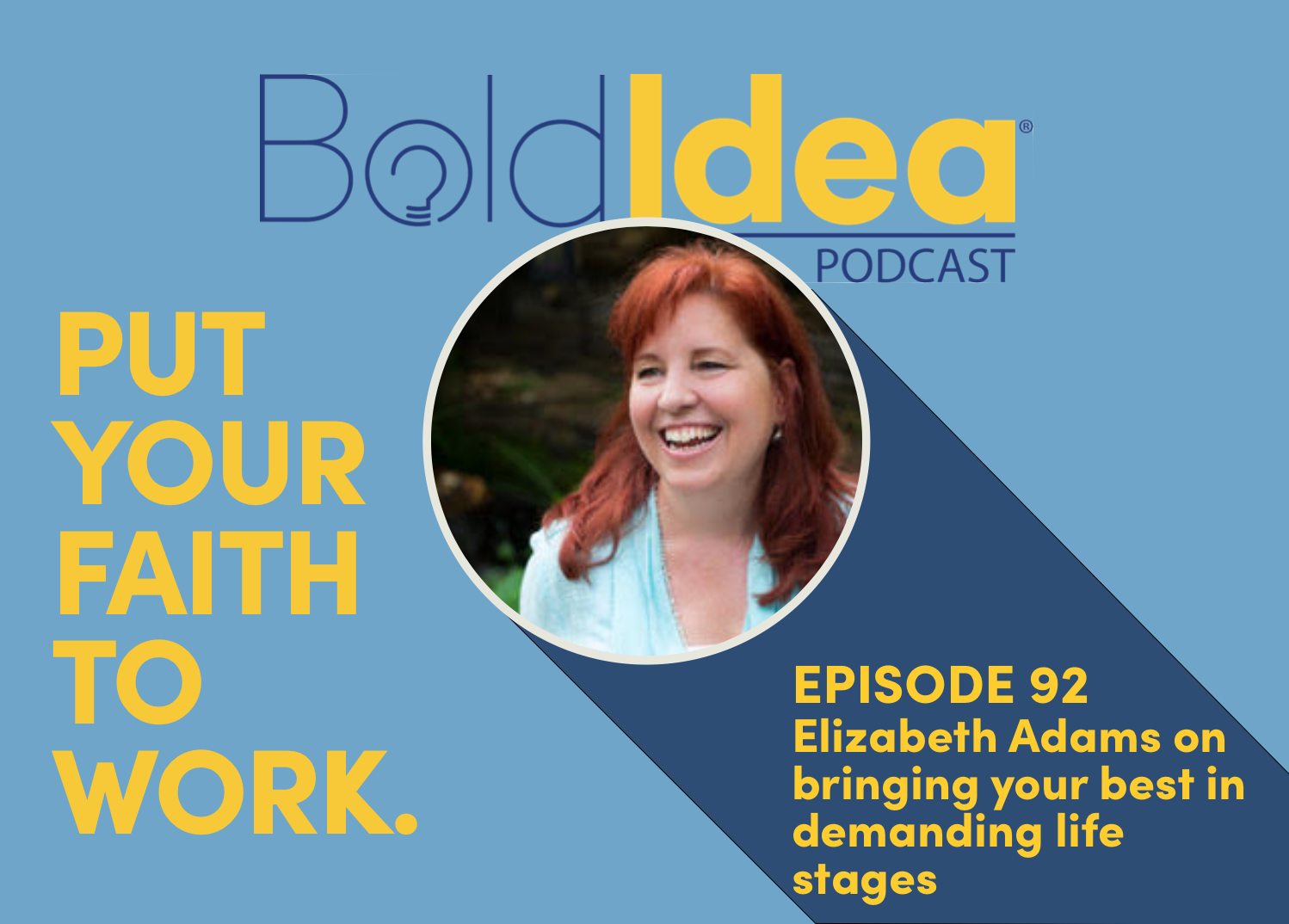Podcast: Play in new window | Download
Elizabeth Adams found herself squeezed between adult children and an aging mother with cancer — all of whom needed a lot of her attention and care. And this was all while she was going through seminary training. When she fell asleep in a fast-food drive thru, she realized she needed to be taking better care of herself, too.
Who is Elizabeth Adams? Elizabeth Adams is an author, speaker, and pastor by training. She’s the founder of the World Peace Project, and has spoken on international adoption, inter-faith issues, and how to rediscover rewarding relationships with family when it’s hard. She has a master’s in theology from Columbia Theological Seminary and is an ordained minister in the National Christian Churches of America. Elizabeth is the author of a new book: Living with Momma: Caring for Aging Parents, Adult Children, and Ourselves. She and her husband live in Kentucky in a now mostly-empty nest.
Elizabeth’s journey of learning to care for her mother and her adult children while still maintaining her own personhood is one that many of us can relate to. Her mission is to help people in demanding life stages to recognize what their needs are and put practices in place to make sure they are met. She’s a true encouragement to caregiving warriors everywhere who need to know they are not alone and they don’t have to live a life of resentment or regret.
Quotes:
“I didn’t think and I didn’t evaluate. I just started doing .” — Elizabeth
“Needs scream at a person like me. That’s just my nature. So how do I fix them and still take care of me?” — Elizabeth
“No one regrets being at the side of their mother’s bed when she dies.” — Elizabeth
“How do I care for this person because it’s who I am, not who they are.” — Elizabeth
“I’ve got to see it, think it, and pray it, and now I can be it.” — Elizabeth
Action Steps:
- Write down answers to these two questions (but edit them to reflect your situation!): 1) What is the best thing about living with your aging mother?; and 2) What’s the one thing I wish I knew before they moved in? Then ask yourself: If I’m being loving, what does that look like if I’m not loving myself? It’ll likely include resentment and exhaustion.
- If you’re dealing with a difficult adult child — or trying to love them in spite of poor choices or hurtful actions on their part — follow the guidance of Philippians 4:8 and think on what is good about them instead of just the negatives.
- Often, we are headed down a path and then something happens and causes us to reassess. When that happens to you, what value system do you act out of? Make sure you have a value system identified so that you can be sure you are acting and not reacting to getting thrown off course.
- Decide where you are going to give forgiveness and where you are going to have regrets. Where do you want to fight your battles? If you decide that the cost of the regret is greater than the cost to forgive somebody, you will choose to forgive every time.
Resources mentioned:
- Official website: livingwithmomma.com
- Connect with Elizabeth on Facebook or in her closed Facebook Group, Living with Momma.
- Living with Momma: Caring for Aging Parents, Adult Children, and Ourselves by Elizabeth B. Adams
This Episode Sponsored By
Ways to get involved:
- Subscribe to receive these show notes delivered to your inbox.
- Leave a review for this show on iTunes, Google Play Music and/or Stitcher Radio.
- Leave a comment or question below.
- Share this post with others in your network:
We look forward to hearing from you!


